
SpaceX Starship: Elon Musk’s company launches most powerful rocket in the world for first ever time
SpaceX has successfully launched Starship, the world’s most powerful rocket, for the first ever time. The spacecraft took off from Texas early on Saturday local time. It marked SpaceX’s second attempt to launch the spacecraft, after a previous test in April saw the rocket exploded soon after launch. The booster that carried the spacecraft up towards orbit exploded after it detached from the main spacecraft. SpaceX said that it had known there was a chance that the booster would be destroyed in the launch. But the main part of the ship successfully carried on towards the edge of space. Eventually, SpaceX hopes that Starship will fly to the Moon and help with missions to Mars. But first it must undergo a series of uncrewed tests to ensure it is safe. Elon Musk - SpaceX‘s founder, chief executive and chief engineer - also sees Starship as eventually replacing the company’s workhorse Falcon 9 rocket as the centerpiece of its launch business that already lofts most of the world’s satellites and other commercial payloads into space. NASA, SpaceX‘s primary customer, has a considerable stake in the success of Starship, which the US space agency is counting on to play a central role in its human spaceflight program, Artemis, successor to the Apollo missions of more than a half century ago that put astronauts on the moon for the first time. Starship’s towering first-stage booster, propelled by 33 Raptor engines, puts the rocket system’s full height at some 400 feet (122 meters) and produces thrust twice as powerful as the Saturn V rocket that sent the Apollo astronauts to the moon. SpaceX is aiming to at least exceed Starship-Super Heavy’s performance during its April 20 test flight, when the two-stage spacecraft blew itself to bits less than four minutes into a planned 90-minute flight. That flight went awry from the start. SpaceX has acknowledged that some of the Super Heavy’s 33 Raptor engines malfunctioned on ascent, and that the lower-stage booster rocket failed to separate as designed from the upper-stage Starship before the flight was terminated. The company’s engineering culture, considered more risk-tolerant than many of the aerospace industry’s more established players, is built on a flight-testing strategy that pushes spacecraft to the point of failure, then fine-tunes improvements through frequent repetition. A failure at any point in the test flight would be a major concern for NASA, which is counting on SpaceX‘s rapid rocket development ethos to swiftly get humans to the moon in the U.S. competition with China’s lunar ambitions. Judging the success or failure of the outcome may be less than clear-cut, depending on how far the spacecraft gets this time. NASA Administrator Bill Nelson, who has made the China rivalry a key need for speed, compared Starship’s test campaign with the success of SpaceX‘s past rocket development efforts. “How did they develop the Falcon 9? They went through many tests, sometimes it blew up,” Nelson told Reuters on Tuesday. “They’d find out what went wrong, they’d correct it then go back.” The combined spacecraft in April reached a peak altitude of roughly 25 miles (40 km), only about halfway to space at its target altitude of 90 miles (150 km), before bursting into flames. Musk has said that an internal fire during Starship’s ascent damaged its engines and computers, causing it to stray off course, and that an automatic-destruct command was activated some 40 seconds later than it should have to blow up the rocket. The launch pad itself was shattered by the force of the blastoff, which also sparked a 3.5-acre (1.4-hectare) brush fire. No one was injured. SpaceX has since reinforced the launch pad with a massive water-cooled steel plate, one of dozens of corrective actions that the U.S. Federal Aviation Administration required before granting a launch license on Wednesday for the second test flight. Additional reporting by agencies Read More SpaceX launches ‘zero fuel’ engine into space SpaceX is launching the world’s biggest rocket – follow live SpaceX to launch world’s biggest rocket again after first attempt ended in explosion The world’s most powerful rocket should launch imminently, Elon Musk says Why Apple is working hard to break into its own iPhones OpenAI co-founder Sam Altman ousted as CEO
2023-11-18 21:17
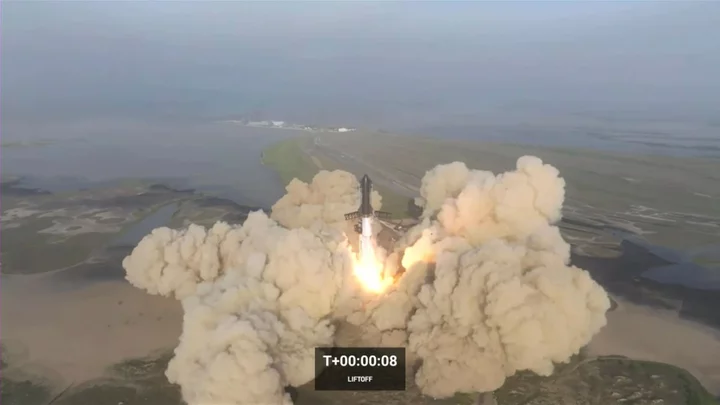
Starship launch LIVE: SpaceX attempts historic test of world’s biggest rocket
After months of delays, SpaceX will finally attempt to launch its massive Starship rocket into orbit for the first time. Saturday’s attempt comes seven months after the first effort to launch a fully stacked Starship – which is both the tallest and most powerful rocket ever built – ended in a catastrophic explosion, just minutes after lift off. SpaceX boss Elon Musk says Starship holds the key to making humanity a multi-planetary species, with plans to build hundreds of the spacecraft in order to set up a permanent human colony on Mars. But first Starship must successfully conduct an uncrewed orbital test, which will see it leave from its launchpad at SpaceX’s Starbase facility in Texas, before flying almost all the way around the Earth and splashing down off the coast of Hawaii. A 20 minute launch window opens at 7am CT (1pm GMT), with the flight expected to last around 90 minutes. We’ll be bringing all the latest updates, as well as a live stream as soon as it is available.
2023-11-18 18:54
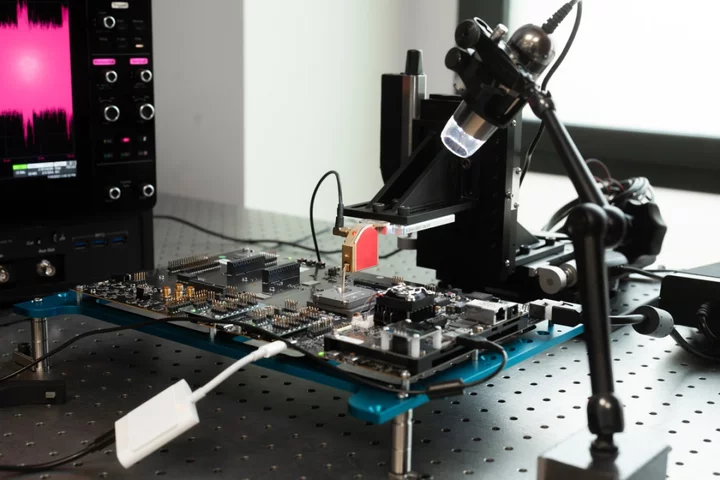
Why Apple is working hard to break into its own iPhones
Last summer, Apple’s iPhones got a new feature that it hopes you never need to use and which mostly makes them harder to use. Named Lockdown Mode, Apple stresses that it is not for everyone, calling it an “optional, extreme protection” aimed at “very few individuals” that will be irrelevant to most people. Many people will never know that the feature exists. But it is just one part of a range of features that Apple and other companies have been forced to add to their devices as phones and other personal devices become an increasingly important part of geopolitics. Lockdown Mode is just one part of Apple’s response: it sits alongside other security features as well as detailed security work that aims to stop people breaking into its devices. That work has largely been done quietly, with Apple focusing much more on its privacy work than on security. But recently it opened up on some of that work, as well as the thinking that led Apple to put so much focus onto a set of features that nobody ever wants to use. Some of that work is happening now in Paris. The city has a long history of work on security technology – including work on smart cards that saw the early widespread introduction of secure debit cards in France – but the activity at Apple’s facilities in the city is looking far ahead, towards iPhones and other devices that are secret for now and will not appear for years. As part of that work in Paris, Apple’s engineers are working hard to break its phones. Using a vast array of technology including lasers are finely tuned sensors, they are trying to find gaps in their security and patch them up before they even arrive in the world. Unlike with software, where even significant security holes can be fixed relatively simply with a security update, hardware is out of Apple’s hands once a customer buys it. That means that it must be tested years in advance with every possible weakness probed and fixed up before the chip even makes it anywhere near production. Apple’s chips have to be relied upon to encrypt secure data so that it cannot be read by anyone else, for instance; pictures need to be scrambled before they are sent up to be backed up on iCloud, for instance, to ensure that an attacker could not grab them as they are transferred. That requires using detailed and complicated mathematical work to make the pictures meaningless without the encryption key that will unlock them. There are various ways that process might be broken, however. The actual chip doing the encryption can show signs of what it is doing: while processors might seem like abstract electronics, they throw out all sorts of heats and signals that could be useful to an attacker. If you asked someone to keep a secret number in their head and let you try and guess it, for instance, you might tell them to multiply the number by two and see how long it takes and how hard they are thinking; if it’s a long time, it suggests the number might be especially big. the same principle is true of a chip, it’s just that the signs are a little different. And so Apple gets those chips and probes them, blasts them with precisely targeted lasers, heats them up and cools them down, and much more besides. The engineers in its Paris facilities doing this work are perhaps the most highly capable and well resourced hackers of Apple’s products in the world; they just happen to be doing it to stop everyone else doing the same. If they find something, that information will be distributed to colleagues who will then work to patch it up. Then the cycle starts all over again. It is complicated and expensive work. But they are up against highly compensated hackers: in recent years, there has grown up to be an advanced set of companies offering cyber weapons to the highest bidder, primarily for use against people working to better the world: human rights activists, journalists, diplomats. No piece of software better exemplifies the vast resources that are spent in this shadow industry than Pegasus, a highly targeted piece of spyware that is used to hack phones and surveil their users, though it has a host of competitors. Pegasus has been around since at least 2016, and since then Apple has been involved in a long and complicated game of trying to shut down to the holes it might exploit before attackers find and market another one. Just as with other technology companies, Apple works to secure devices against more traditional attacks, such as stolen passwords and false websites. But Pegasus is an entirely different kind of threat, targeted at specific people and so expensive that it would only be used in high-grade attacks. Fighting it means matching its complexity. It’s from that kind of threat that Lockdown Mode was born, though Apple does not explicitly name Pegasus in its materials. It works by switching off parts of the system, which means that users are explicitly warned when switching it on that they should only do so with good reason, since it severely restricts the way the phone works; FaceTime calls from strangers will be blocked, for instance, and so will most message attachments. But Lockdown Mode is not alone. Recent years have seen Apple increase the rewards in its bug bounty programme, through which it pays security researchers for finding bugs in its software, after it faced sustained criticism over its relatively small payouts. And work on hardware technologies such as encryption – and testing it in facilities such as those in Paris – mean that Apple is attempting to build a phone that is safe from attacks in both hardware and software. Apple says that work is succeeding, believing it is years ahead of its hackers and proud of the fact that it has held off attacks without forcing its users to work harder to secure their devices or compromising on features. But recent years have also seen it locked in an escalating battle: Lockdown Mode might have been a breakthrough of which it is proud, but it was only needed because of an unfortunate campaign to break into people’s phones. Ivan Krstić, Apple’s head of security engineering and architecture, says that is partly just a consequence of the increasing proliferation of technology. “I think what’s happening is that that there are more and more avenues of attack. And that’s partly a function of wider and wider deployment of technology. More and more technology is being used in more and more scenarios.,” says Krstić, pointing not only to personal devices such as phones but also to industry and critical infrastructure. “That is creating more opportunity for more attackers to come forward to develop some expertise to pick a niche that they want to spend their time attacking. “There was a time that that I still well remember when data breaches were seemingly not a wide problem. But of course, they have exploded over the last 10 years or so – more than tripled, between 2013 and 2021. In 2021, the number of personal records breached 1.1 billion personal records. “During the same amount of time a number of other attackers have been pursuing new kinds of attack, or different kinds of attacks – against devices, against Internet of Things devices, against really anything that is that is connected in in some way to the internet. “And I think in a lot of these cases, attackers were will go where there is money to be made or some other benefits to be obtained and the nature of the fight for security is to keep pushing the defences forward to keep trying to stay one step ahead of not just where the attacks are today, but also where they’re going.” Apple doesn’t reveal exactly how much of its money is spent on security work. But it must be significant, both in terms of raw money as well as the extra thought and design required on any given device. What’s the justification for investing so many resources on ensuring that a very small number of people are protected from the most advanced attacks? “There are two,” says Krstić. “One is that attacks that are the most sophisticated attacks today may over time start to percolate down and become more widely available. Being able to understand what the absolute most sophisticated most grave threats look like today lets us build defences before any of that has a chance to percolate down and become more widely available. But I think that’s the smaller of the two reasons. “When we look at how some of this state grade mercenary spyware is being abused, the kinds of people being hit with it – it’s journalists, diplomats, people fighting to make the world a better place. And we think it’s wrong for this kind of spyware to be abused in this way. We think that that those users deserve trustworthy, safe technology, and the ability to communicate safely and freely, just as all our other users. “So this was, for us, not a business decision. It was… doing what’s right.” Apple’s focus on security places it into a difficult geopolitical situation of the kind it has often studiously avoided. Late last month, for instance, Indian opposition leaders started receiving threat notifications warning them that their devices might be attacked. Neither the notifications or Apple more generally named who was doing it, and Apple says that the warnings could be a false alarm – but nonetheless the Indian government pushed back, launching a probe of the security of Apple’s devices. It is not the kind of difficulty that comes even with other security work; those stealing passwords or scamming people out of money don’t have lobbyists and government power. The kind of highly targeted, advanced attacks that Lockdown Mode and other features guard against however are costly and complicated, meaning they will often be done by governments that could cause difficulties for Apple and other technology companies. How is Apple guided in situations where it could potentially be up against governments and other powerful agencies? “We do not see ourselves as set against governments,” says Krstić. “That is not what any of this work is about. But we do see ourselves as having a duty to defend our users from threats, whether common or in some cases, truly grave. He declines to give precise details about how the company has dealt with those difficulties in the past. “But I think when you look at what’s been driving it, when you look at these cases that I’ve pointed to and when you look at what the response has been to the defences we built and how we’ve been able to protect some of these users, we feel very strongly like we’re doing the right thing.” Threat notifications are not the only part of Apple’s security work that have caused issues with authorities. Another much larger debate is coming, and might potentially bring a much more substantial change. The European Union’s recently signed Digital Markets Act requires that what it calls gatekeepers – Apple and other operators of app stores – must allow for sideloading, or letting people put apps on their phones from outside of those App Stores. At the moment, iPhones can only download and run apps downloaded from the official store; Apple says that is an important protection, but critics argue that it gives it too much power over the device. The introduction of sideloading is just one of the many controversial parts of the Digital Markets Act. But if it goes through as planned, the company will be forced to let people head to a website and download a third-party app, without standing in the way. The European Commission has made very clear that it believes that is required for fair competition, and that it thinks that will give users more choice about what apps they use and how they get them. Krstić does not agree, and Apple has been explicit in its opposition to sideloading. The idea that people are being given an extra choice – including the choice of sticking with the App Store and keeping its protections – is a false one, he says with some frustration. “That’s a great misunderstanding – and one we have tried to explain over and over. The reality of what the alternative distribution requirements enable is that software that users in Europe need to use – sometimes business software, other times personal software, social software, things that they want to use – may only be available outside of the store, alternatively distributed. “In that case, those users don’t have a choice to get that software from a distribution mechanism that they trust. And so, in fact, it is simply not the case that users will retain the choice they have today to get all of their software from the App Store.” Read More Disney, Apple suspend ads on Musk’s X after he agrees with antisemitic tweet Apple to adopt system to improve texting between iPhones and Android devices Users of iPhones can now check bank balance from Wallet app TikTok launches feature to save songs to music apps like Spotify Apple answers one of the big mysteries about the iPhone – for now You can finally use one feature of the Apple Vision Pro headset – sort of
2023-11-18 18:29
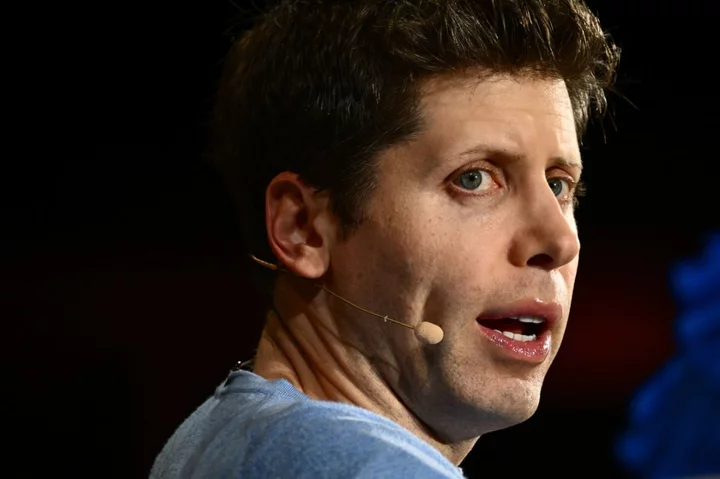
OpenAI co-founder Sam Altman ousted as CEO
The pioneering artificial intelligence firm OpenAI has ejected its chief executive Sam Altman after claims that he was not honest with the board of directors. In a blog post on Friday afternoon, the company behind ChatGPT and the image generation AI Dall-E said that its board “no longer has confidence” in Mr Altman’s ability to lead. It was an abrupt and cryptic departure for a man who, alongside his former colleague Elon Musk, has become one of the global figureheads of the AI industry and the seismic change it has created. The company will now be run by its former chief operating officer Mira Murati, with immediate effect. ”Mr Altman’s departure follows a deliberative review process by the board, which concluded that he was not consistently candid in his communications with the board, hindering its ability to exercise its responsibilities,” said OpenAI’s statement. “The board no longer has confidence in his ability to continue leading OpenAI.” The board itself added that it was “grateful for Sam’s many contributions to the founding and growth of OpenAI”, and that it had “utmost confidence” in Ms Murati. This story is breaking and will be updated. Read More ChatGPT Plus stops signups after major update ChatGPT creator mocks Elon Musk in brutal tweet ChatGPT goes offline
2023-11-18 05:57

Exclusive-Meta's head of augmented reality software stepping down
By Katie Paul NEW YORK Meta's head of augmented reality software is stepping down from his role, a
2023-11-18 04:48
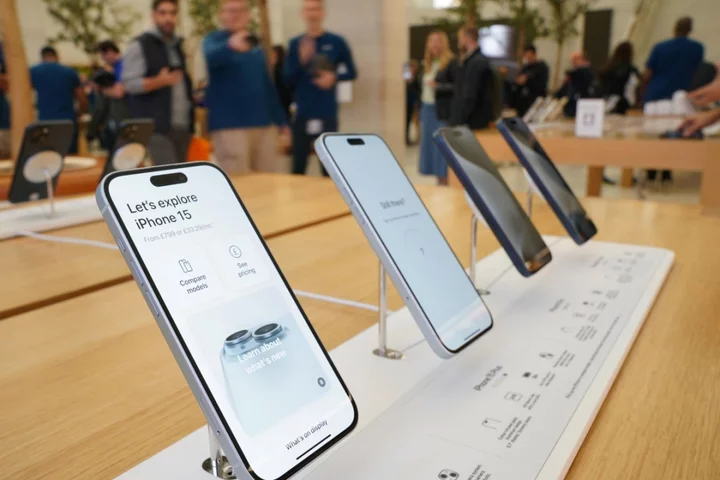
Apple to adopt system to improve texting between iPhones and Android devices
Apple is to adopt a messaging standard that will make texting between an iPhone and an Android device a better experience. The US technology giant has confirmed it will adopt the rich communication services (RCS) “later next year”. RCS is considered an industry standard for messaging and allows users to send and receive high-quality photos and videos, chat over wifi as well as mobile data and users are able to see when messages have been read – a range of features that currently do not exist or work to the same standard when messaging between an iPhone and Android. Until now, Apple has focused on its own messaging system – iMessage – which allows for seamless communication between iPhone handsets. Later next year, we will be adding support for RCS Universal Profile, the standard as currently published by the GSM Association. We believe RCS Universal Profile will offer a better interoperability experience when compared to SMS or MMS Apple spokesperson Adopting RCS alongside iMessage will likely make the experience of chatting to an Android user from an iPhone closer to the iMessage experience. In a statement given to industry news site 9to5Mac, Apple said: “Later next year, we will be adding support for RCS Universal Profile, the standard as currently published by the GSM Association. “We believe RCS Universal Profile will offer a better interoperability experience when compared to SMS or MMS.” The announcement of the proposed change also comes as EU regulators have continued to pressure Apple to make iMessage more interoperable with other services under its new Digital Services Act – legislation designed to rein in tech giants, improve competition and ultimately provide better, more accessible services for consumers. Earlier this week, smartphone maker Nothing also revealed its Android phones would begin to support iMessage via a new app. Read More ICO seeks permission to appeal against Clearview AI tribunal ruling Users of iPhones can now check bank balance from Wallet app VR tool aims to help rail passengers spot and safely tackle sexual harassment
2023-11-18 00:56

A newly found ancient language in Turkey is yielding new discoveries
Archaeologists in Turkey are slowly unravelling the secrets of a previously unknown ancient language. And among them are revelations that long-forgotten civilisations used language to promote multiculturalism and political stability. The ancient clay tablets unearthed from archaeologists, in the ancient capital of the Hittite Empire at Hattusa, were recently found to contain the previously unknown language. Researchers had dusted off nearly 30,000 unique tablets at the scene – a UNESCO World Heritage Site – with most written in Hittite, and a few in the brand new language. The ongoing excavations have since revealed that the imperial civil service had whole departments whose job it was to research their subject peoples’ religions. Back in the second millennium BC, Hittite leaders told their officials to record religious ceremonies and other traditions of subject peoples by writing them in their respective local languages. The idea was that the traditions would be preserved and incorporated into the wider empire, in what appears to be a push towards multiculturalism. The fact that multiculturalism was such a prominent part of Bronze Age culture certainly has resonances in the modern day, where debates around immigration and multiculturalism continue to be a hot topic. So far, experts have found at least five subject ethnic groups who have had the treatment, with the latest example unearthed two months ago. It was written in a previously unknown Middle Eastern language that had been lost for up to 3,000 years. The language is being called Kalasmaic, because it would have been spoken by a subject people in an area called Kalasma in the northwest of the empire. And while only five minority languages have so far been found on the Bronze Age tablets, the reality is that there were probably at least 30, archaeologists say. Daniel Schwemer, a Wurzburg University professor who is leading the investigation into the newly discovered texts, said: “Bronze Age Middle Eastern history is only partly understood – and discovering additional clay tablet documents is helping scholars to substantially increase our knowledge.” How to join the indy100's free WhatsApp channel Sign up to our free indy100 weekly newsletter Have your say in our news democracy. Click the upvote icon at the top of the page to help raise this article through the indy100 rankings.
2023-11-18 00:23
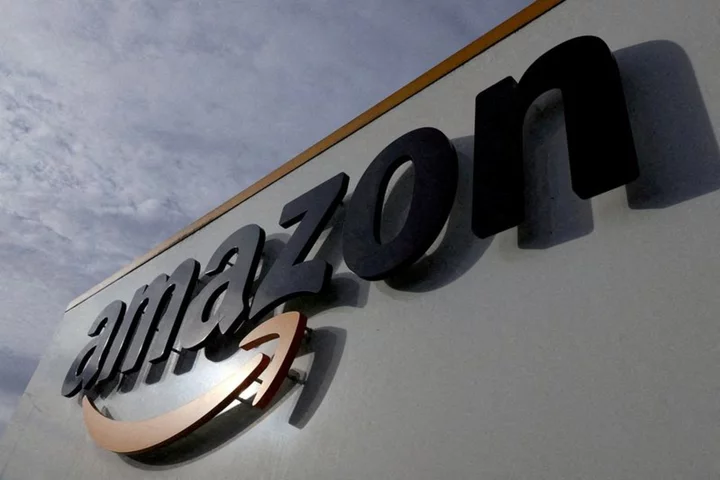
Exclusive-Amazon.com to cut 'several hundred' Alexa jobs
By Greg Bensinger (Reuters) -Amazon.com on Friday announced it is trimming jobs at its Alexa voice assistant unit, citing “shifting”
2023-11-17 23:19
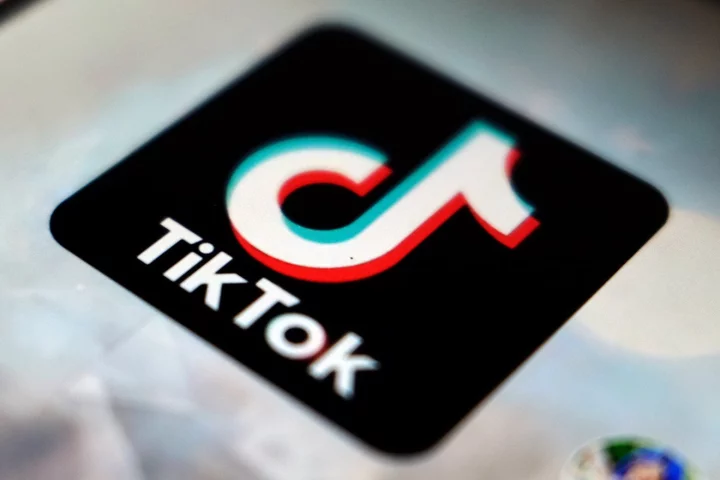
TikTok responds to reports of users sharing letter from bin Laden
TikTok is “proactively and aggressively” removing posts seemingly glorifying Osama bin Laden, it has said. A series of videos that shared a letter from bin Laden justifying the 9/11 attacks were published across the platform, and TikTok said it was “investigating” how it had happened. But it also said that reports about the spread of the posts had been exaggerated, and that the number of videos was actually small. The controversy began in recent days after a host of videos were highlighted by journalist Yashar Ali, in a tweet. He said there were “thousands of TikToks (at least)” that shared the letter from bin Laden. “The TikToks are from people of all ages, races, ethnicities, and backgrounds. Many of them say that reading the letter has opened their eyes, and they’ll never see geopolitical matters the same way again,” he said. “Many of them — and I have watched a lot — say it has made them reevaluate their perspective on how what is often labeled as terrorism can be a legitimate form of resistance to a hostile power.” The tweet led to criticism of TikTok as well as its users, including from the White House. “There is never a justification for spreading the repugnant, evil and antisemitic lies that the leader of Al Qaeda issued just after committing the worst terrorist attack in American history,” a spokesperson said. TikTok said however that the spread of the posts had been relatively limited and that it was not true that the videos were trending. “Content promoting this letter clearly violates our rules on supporting any form of terrorism,” the company wrote on its TikTok account. “We are proactively and aggressively removing this content and investigating how it got onto our platform. “The number of videos on TikTok is small and reports of it trending on our platform are inaccurate. This is not unique to TikTok and has appeared across multiple platforms and the media.” TikTok does not provide readily accessible information about the spread of posts on its platform. Some of the videos had tens of thousands of likes and views. Many of the TikToks pointed to a copy of the letter that had been posted on The Guardian’s website. As it began to spread, the newspaper removed the page, replacing it with a note that it was lacking “the full context” and instead directed readers to a news article about the original letter. Read More TikTok launches feature to save songs to music apps like Spotify Elon Musk weighs in on the scooped bagel debate ICO seeks permission to appeal against Clearview AI tribunal ruling
2023-11-17 19:56

ICO seeks permission to appeal against Clearview AI tribunal ruling
The UK’s data protection watchdog is seeking permission to appeal against the decision of a tribunal to overturn a data privacy fine handed out to facial recognition firm Clearview AI. The Information Commissioner’s Office (ICO) said it believes the tribunal incorrectly interpreted the law when overturning a £7.5 million fine handed out to Clearview by the ICO last year. At the time, the ICO said Clearview had collected billions of images of people’s faces and data – without informing people or gaining their consent – from publicly available information on the internet, including social media platforms, for use in facial recognition services by law enforcement agencies outside of the UK. But last month, a tribunal overturned the ICO’s decision after a Clearview appeal ruling that the ICO did not have the jurisdiction to issue its fine and enforcement notice because Clearview’s system was only used by law enforcement agencies based outside the UK. Whilst my office supports businesses that innovate with AI solutions, we will always take the appropriate action to protect UK people when we believe their privacy rights are not being respected John Edwards, Information Commissioner Now the ICO says it wishes to seek permission to appeal on the grounds that it believes that Clearview itself was not processing data for foreign law enforcement purposes and should not be shielded from the scope of UK law on that basis. “I fully respect the role of the tribunal to provide scrutiny of my decisions – but as the defender of the public’s privacy, I need to challenge this judgment to clarify whether commercial enterprises profiting from processing digital images of UK people, are entitled to claim they are engaged in ‘law enforcement’,” Information Commissioner John Edwards said. “It is my job to protect the data rights of the people of the United Kingdom and it is my view that there are too many who are being affected by the sheer scale and intrusiveness of Clearview’s mass scraping of personal information. “This is an important issue within the AI sphere and whilst my office supports businesses that innovate with AI solutions, we will always take the appropriate action to protect UK people when we believe their privacy rights are not being respected.” The ICO said it would now await the tribunal’s decision on the issue. Clearview AI has been contacted for comment.
2023-11-17 19:50
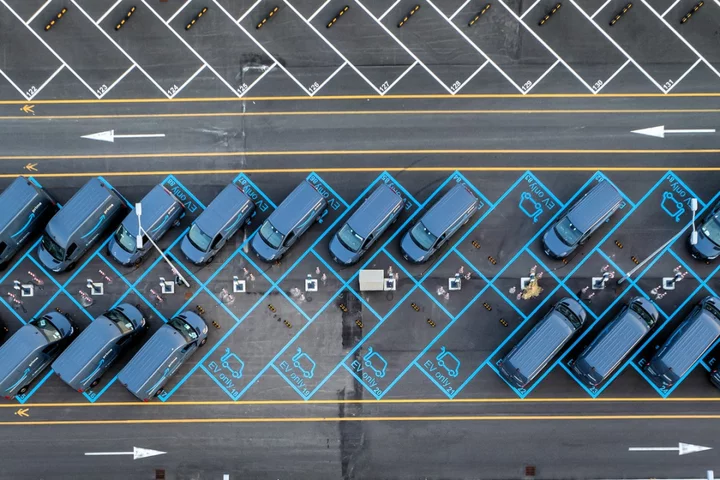
Amazon says it will soon sell cars on its website
Amazon has announced plans to start selling cars on its website, marking a major new product category for the online retail giant that made its start selling books. The e-commerce firm said on Thursday that it will launch vehicle sales in the US in the second half of 2024, allowing local car dealers to sell directly to customers on its site. In a joint announcement with South Korean car manufacturer Hyundai, the two companies said Amazon will begin by offering Hyundai vehicles. In turn, Hyundai will name Amazon’s cloud computing unit AWS as its preferred cloud provider and integrate its next-generation vehicles with Alexa, Amazon’s popular voice assistant. The idea, according to Amazon, is to have customers purchase a new car online and pick it up – or have it delivered – from their local dealer. Amazon did not say how many dealers would be participating in the program or if customers across the US would be able to make purchases. An Amazon spokesperson said the company would release more details as it builds the program, which is expected to begin with Hyundai franchised dealers and launch during the later part of next year. Currently, Amazon sells vehicle equipment online and offers a showroom for consumers who want to research different types of cars they may want to buy. But consumers can not directly purchase a vehicle on its platform. The announcement shows Amazon’s ambitions to grow its footprint through dealers in an industry that has strong lobbying forces and heavy state regulations. Nearly all states require manufacturers to sell their vehicles through dealerships to ensure the automakers don’t undercut their own network of franchised dealers. Despite its vision, Amazon might face challenges convincing consumers who might not feel comfortable making such a large purchase on its platform. In a statement, an Amazon spokesperson said customers are increasingly purchasing vehicles online and the company will provide a “range of solutions that add transparency” to the car buying process to help them make an informed decision. The latest move comes as Amazon faces another class action lawsuit over refunds on returned products, with plaintiffs accusing the retailer of failing to issue refunds for returned products. The lawsuit was filed in federal court in Amazon’s hometown of Seattle this week. Additional reporting from agencies. Read More ‘We are broken’: Armenia looks to technology to rebuild Ring to preview security features with abuse charity to boost safety SpaceX is launching the world’s biggest rocket – follow live Battery breakthrough brings ‘unprecedented performance’ to next-gen cells
2023-11-17 18:46

Germany Will Lend South Africa €500 Million for Energy Switch
Germany, through its KfW development bank, will as soon as Friday sign an agreement to lend South Africa
2023-11-17 17:53
You Might Like...

Juniper Group Acquires Vervotech, a Leading Hotel and Room Mapping Solutions Provider

BP unit to pay record $40 million to settle U.S. air pollution civil charges
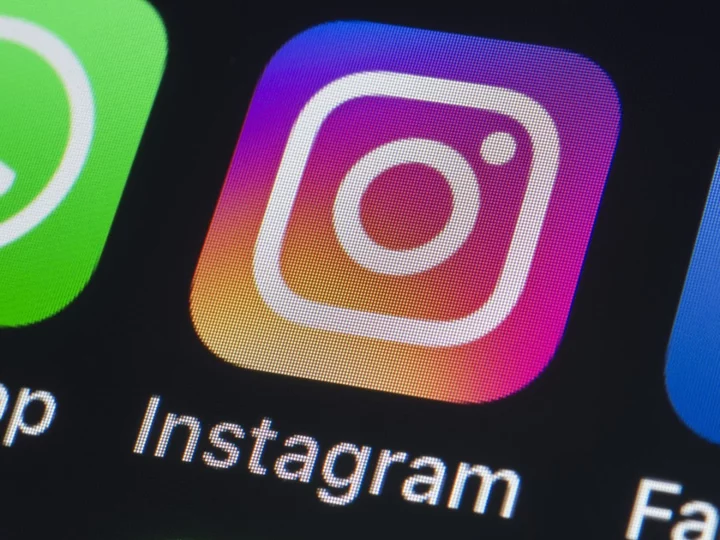
Instagram plans ChatGPT-style AI chatbot with multiple personalities

EU countries fail to agree energy reforms after coal subsidy clash

Personalized Learning – It’s What Teachers Want

FTX accuses ex-lawyer of aiding Bankman-Fried's fraud, silencing whistleblowers

NEP Singapore Moves into New Connected Production Facility

Rollic Partners with Dana White’s Premier Slap Fighting Organization, Power Slap, to Launch New Mobile Game
